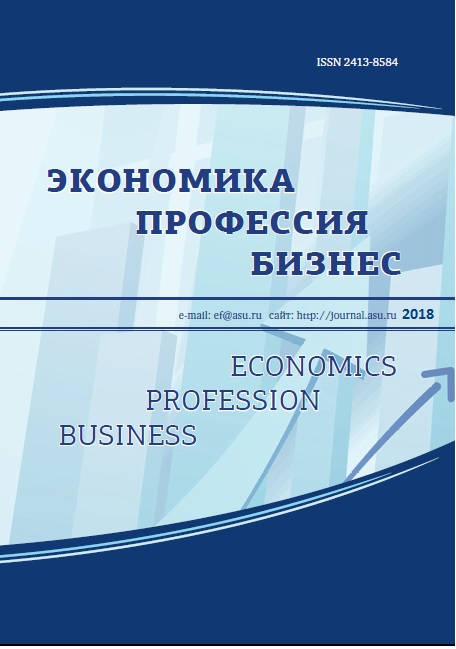PROFESSIONAL EXPECTATIONS OF GRADUATES OF A MODERN UNIVERSITY (CASE STUDY ON THE CITY OF BARNAUL)
Abstract
In this paper, students’ expectations are examined. In the course of the analysis, three types of expectations were identified: positive, neutral and negative. It is proved that their mixing occurs, which causes sort of a «mix» of expectations. This confusion has both a positive impact, being a defense mechanism, and a negative one hiding real problems both in the sphere of education and in the educational activity of the students. In addition, the difference in professional expectations among technical and humanitarian professions are exposed, as well as the main reasons for the emergence of negative expectations among students are highlighted.
Downloads
Metrics
References
Власов Н. М. Особенности профессионального самоопределения и трудоустройства российских студентов // Власть. 2011. № 4. С. 38–41.
Голиусова Ю. В. Избыточное образование как компонент отрицательного человеческого капитала // Развитие человеческого потенциала как условие и фактор модернизации России и ее регионов: сборник статей Всероссийской научно-практической конференции (Уфа, 19–20 ноября 2015 г.) / под ред. Р. М. Валиахметова, Г. Ф. Хилажевой. Уфа, 2015. С. 356–358.
Избыточное образование — проблема для экономики [Электронный ресурс]. URL: http: http://vadim-galkin.ru/politics/izbytochnoe-obrazovanie-problema-dlya-ekonomiki/.
Ожегов С. И. Толковый словарь русского языка. М., 1992. С. 872.
Словарь практического психолога / сост. С. Ю. Головин. Минск, 1998. С. 301.
Шалимова А. М. Социально-психологические факторы профессиональных ожиданий студентов-социологов : дис. … д-ра психол. наук. Москва, 2014. С. 173.
REFERENCES
Analytical report on the results of a sociological study of student satisfaction with the quality of educational process at the university in 2011–2012. URL: http://psy-kons.ru/profkonsultirovanie/ozhidaniy.html/.
Vlasov, N. M. (2011) Features of professional self-determination and employment of Russian students. Vlast, 4, 38–41 (in Russian).
Goliusova, Yu.V. (2015) Excess education as a component of negative human capital. Human potential development as a condition and factor of modernization of Russia and its regions: collection of articles of the All-Russian Scientific and Practical Conference (Ufa, November 19–20, 2015) / ed. R. M. Valiakhmetov & G. F. Hilazheva. Ufa, 356–358 (in Russian).
Excess education is a problem for the economy. URL: http: http://vadim-galkin.ru/politics/izbytochnoeobrazovanieproblema-dlya-ekonomiki/.
Ozhegov, S. I. (1992) Explanatory dictionary of the Russian language. Moscow, 872 (in Russian).
Golovin, S. Yu. (1998) Dictionary of practical psychologist. Minsk, 301 (in Russian).
Shalimova, A. M. (2014) Socio-psychological factors of professional expectations of sociology students: doctoral dissertation. Moscow, 173 (in Russian).
Economics Profession Business is a golden publisher, as we allow self-archiving, but most importantly we are fully transparent about your rights.
Authors may present and discuss their findings ahead of publication: at biological or scientific conferences, on preprint servers, in public databases, and in blogs, wikis, tweets, and other informal communication channels.
Economics Profession Business (EPB) allows authors to deposit manuscripts (currently under review or those for intended submission to EPB) in non-commercial, pre-print servers such as ArXiv.
Authors who publish with this journal agree to the following terms:
- Authors retain copyright and grant the journal right of first publication with the work simultaneously licensed under a Creative Commons Attribution License that allows others to share the work with an acknowledgement of the work's authorship and initial publication in this journal.
- Authors are able to enter into separate, additional contractual arrangements for the non-exclusive distribution of the journal's published version of the work (e.g., post it to an institutional repository or publish it in a book), with an acknowledgement of its initial publication in this journal.
- Authors are permitted and encouraged to post their work online (e.g., in institutional repositories or on their website) prior to and during the submission process, as it can lead to productive exchanges, as well as earlier and greater citation of published work (See The Effect of Open Access).









